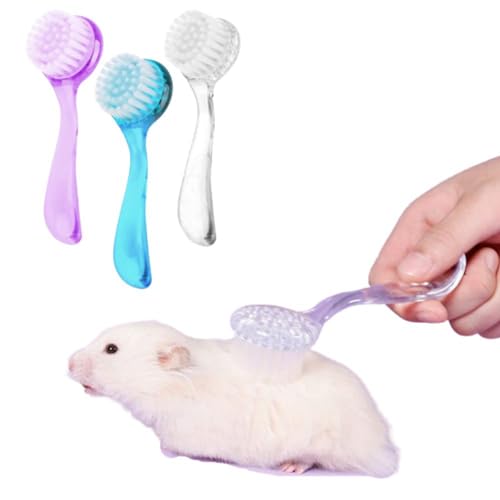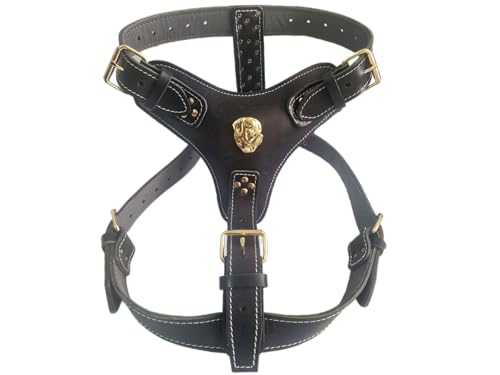


Using products intended for canines on small rodents is not advisable. These formulations are tailored to the unique skin and fur characteristics of dogs, which differ significantly from those of smaller animals. Ingredients that may be harmless to larger pets can cause irritation or allergic reactions in smaller creatures.
Many formulations contain fragrances, preservatives, and chemicals that are unsuitable for delicate skin. Rodents often have more sensitive skin, and exposure to such ingredients may lead to discomfort or health issues. Always opt for products specifically designed for small mammals to ensure their well-being.
If bathing is necessary, consider alternatives designed explicitly for smaller companions. Such products are formulated to maintain the health of their coat and skin without introducing harmful substances. Regular grooming with appropriate tools can often negate the need for baths, allowing your furry friend to stay clean and healthy.
Using Canine Cleansing Products on Small Rodents
It is not advisable to use products designed for larger animals on smaller ones like rodents. Their skin and fur have different pH levels and sensitivities. Using such a product could lead to skin irritation or allergic reactions in these small creatures.
Potential Risks
- Skin irritation: Products made for larger mammals may contain ingredients harmful to small animals.
- Allergic reactions: Ingredients that are harmless to dogs might trigger allergies in tiny pets.
- Disruption of natural oils: Cleansers may strip essential oils, leading to dryness and discomfort.
Alternatives to Consider
Instead of using canine products, opt for those specifically formulated for smaller pets. These alternatives are designed to be gentle and suitable for their unique needs. If your small rodent is facing skin issues, consider consulting a veterinarian for the best treatment options.
For pet owners with canines facing skin issues, you might find useful information about the best dog food for dogs with dandruff.
Understanding the Ingredients in Canine Cleansing Products
Always check the ingredient list before using any cleansing products intended for canines on other animals. Common components can be harmful. For instance, sodium lauryl sulfate is a foaming agent that can irritate delicate skin. It’s often found in many cleansing solutions, and while it creates lather, it may strip natural oils from fur and skin, leading to dryness or irritation.
Another ingredient to watch for is fragrance. Artificial scents can trigger allergic reactions or sensitivities, especially in small, sensitive creatures. Opt for products that specify natural ingredients or are unscented to minimise risks.
Preservatives are also prevalent, such as parabens, which can disrupt hormonal balances. While these are often included to prolong shelf life, their potential side effects on smaller animals shouldn’t be overlooked. Choosing preservative-free formulations can be a step towards safer alternatives.
Look out for antifungal or antibacterial agents like triclosan. While they can be beneficial for combating infections in canines, they may not be suitable for smaller animals, as their skin microbiome is different and more sensitive.
Lastly, avoid any cleansing products containing alcohol. This ingredient can dry out the skin and cause irritation, which is especially dangerous for smaller pets. Always prioritise products that are specifically designed for the type of animal you are caring for to ensure their well-being.
Comparing Skin pH Levels of Dogs and Guinea Pigs
The skin pH of canines typically ranges from 6.2 to 7.4, which is slightly acidic to neutral. In contrast, the skin of small rodents like cavies is more acidic, generally falling between 6.0 and 6.5. This difference in acidity plays a crucial role in maintaining the health of their skin and fur.
Implications for Grooming Products
Using a cleansing product formulated for canines on a small rodent can disrupt the delicate pH balance of their skin. Such disruption can lead to irritation, dryness, and even skin conditions over time. It is vital to select products specifically designed for the unique needs of small mammals to ensure their skin remains healthy and well-hydrated.
Choosing the Right Products
When selecting grooming solutions, always check the label for pH levels and ingredients that cater to small mammals. Opt for those that are gentle and free from harmful additives. Products tailored for small rodents will support their skin health better than those designed for canines, safeguarding them from potential adverse reactions.
Potential Risks of Using Canine Cleansers on Small Rodents
Using canine cleansing products on small rodents can lead to several potential hazards. First, some formulations contain fragrances and preservatives that may irritate the sensitive skin of these small creatures, causing allergic reactions or dermatitis. Symptoms can include itching, redness, and discomfort.
Another concern is the pH imbalance. Cleansing products designed for canines typically have a different pH level compared to that of small rodents. This discrepancy can disrupt the natural protective barrier of their skin, making them more susceptible to infections and other skin issues.
Additionally, certain ingredients, such as tea tree oil and other essential oils, can be toxic to small rodents. These substances can cause serious health problems, including respiratory distress and gastrointestinal issues if ingested or absorbed through the skin.
When choosing any cleansing product, always check the ingredient list carefully. If you’re uncertain, consult a veterinarian who can recommend appropriate options that ensure the well-being of your small companion.
Alternative Cleaning Solutions for Small Rodents
Using a gentle, natural cleanser can be an excellent alternative for maintaining the hygiene of small rodents. Products with oatmeal or aloe vera are particularly beneficial, as they soothe the skin while providing cleansing properties. Look for formulations specifically designed for small animals that avoid harsh chemicals and fragrances.
Another effective option is a warm, damp cloth. This method allows for targeted cleaning without exposing the animal to unnecessary products. Simply moisten the cloth and gently wipe down the fur, focusing on areas that may accumulate dirt or grease.
Bathing in water can be risky for small mammals, but a light misting can help refresh their coat. Use a spray bottle filled with warm water, lightly spritzing the fur while avoiding the face and ears. This method can help remove dust and debris without the stress of a full bath.
Regular grooming with a soft brush is also recommended. Brushing helps remove loose fur, dirt, and dander, promoting a healthy coat. It’s a bonding activity that can make the cleaning process enjoyable for both the pet and the owner.
Lastly, consider using natural wipes made from safe ingredients. These can be convenient for quick clean-ups and are often infused with soothing elements, ensuring comfort during the cleaning process. Always check the label to ensure they are suitable for small animals.
FAQ:
Can I use dog shampoo on my guinea pig?
Using dog shampoo on guinea pigs is not recommended. Dog shampoos are formulated for canine skin and may contain ingredients that are harmful to guinea pigs. Their skin is more sensitive, and using inappropriate products can lead to irritation or allergic reactions. It is best to use shampoos specifically designed for small animals or, ideally, to consult a veterinarian for advice on proper grooming products.
What ingredients should I avoid in shampoos for my guinea pig?
When selecting a shampoo for your guinea pig, avoid products that contain harsh chemicals, fragrances, or artificial colours. Ingredients like alcohol, sulfates, and parabens can be particularly irritating to their skin. Always check the label and choose a gentle, natural formula that is specifically made for small animals. If in doubt, consult a vet for recommendations on safe grooming products.
How often should I bathe my guinea pig?
Guinea pigs generally do not require frequent baths, as they are good at grooming themselves. A bath may be necessary if they become particularly dirty or if there is a medical issue. In such cases, a bath every few months is usually sufficient. Over-bathing can strip their skin of natural oils and cause dryness or irritation. Always ensure the bath is done gently and with appropriate products.
What should I do if my guinea pig gets dirty?
If your guinea pig gets dirty, assess the situation first. For minor messes, you can often spot clean using a damp cloth without a full bath. If they are very dirty, use a small animal shampoo and ensure you rinse thoroughly. Always make sure the water is warm, and keep the environment calm to reduce stress for your guinea pig. If they have a persistent problem, consider consulting a vet for further advice.






